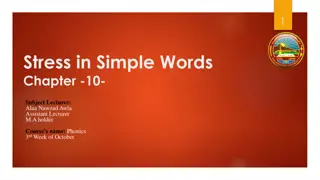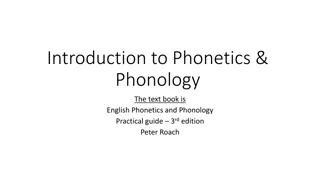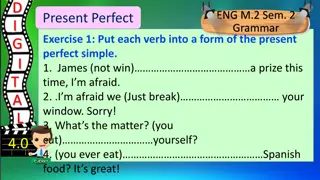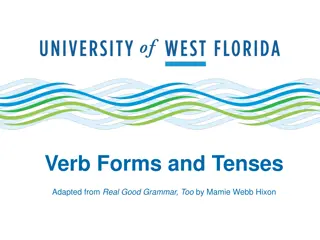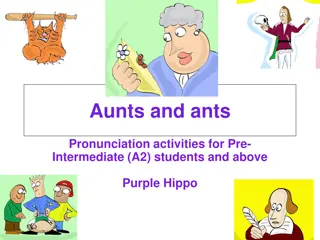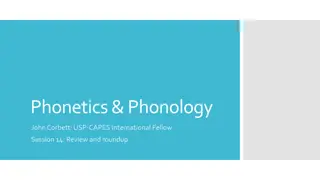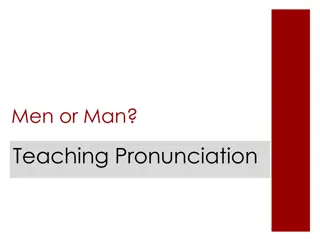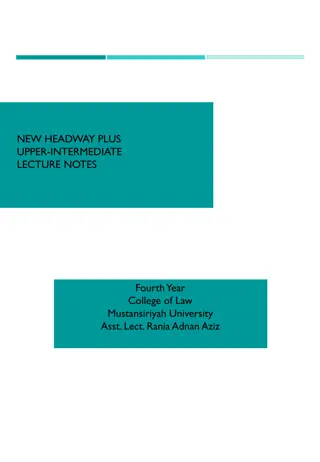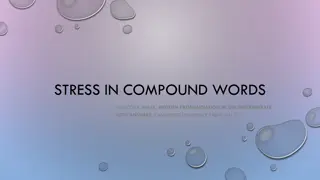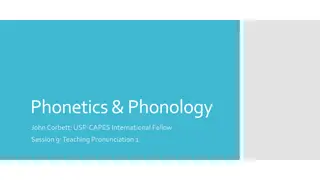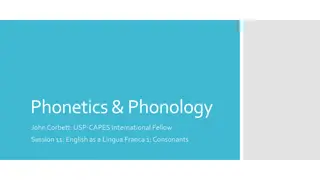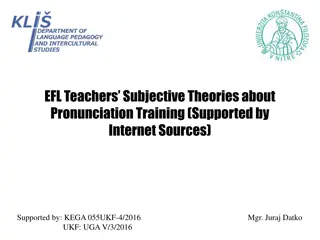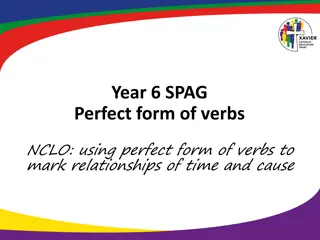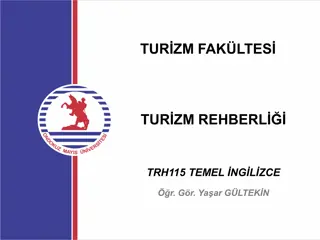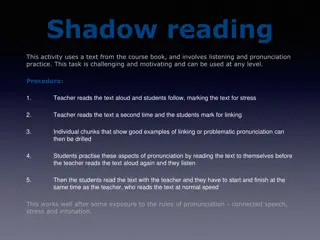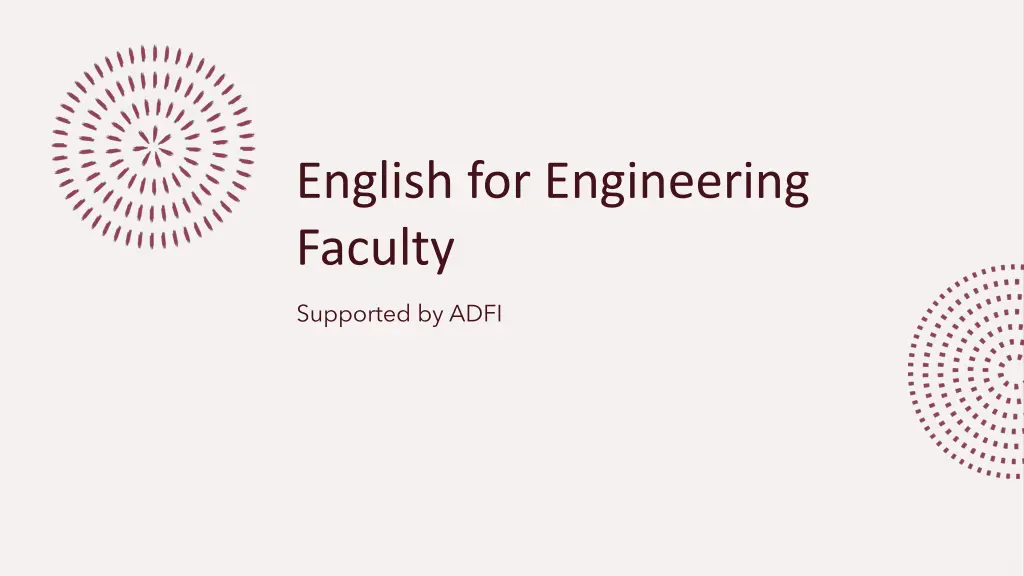
English for Engineering Faculty - Present Perfect vs Simple Past Tense
Enhance your understanding of Present Perfect and Simple Past Tense in English with this informative guide for engineering faculty. Learn the key indicators, examples, and pronunciation rules for -ed endings. Test your knowledge with exercises to differentiate between the two tenses effectively.
Download Presentation

Please find below an Image/Link to download the presentation.
The content on the website is provided AS IS for your information and personal use only. It may not be sold, licensed, or shared on other websites without obtaining consent from the author. If you encounter any issues during the download, it is possible that the publisher has removed the file from their server.
You are allowed to download the files provided on this website for personal or commercial use, subject to the condition that they are used lawfully. All files are the property of their respective owners.
The content on the website is provided AS IS for your information and personal use only. It may not be sold, licensed, or shared on other websites without obtaining consent from the author.
E N D
Presentation Transcript
English for Engineering Faculty Supported by ADFI
Present Perfect vs Simple Past Tense Present Perfect: Simple Past: Actions that have relevance to the present moment or actions that happened at an unspecified time. Describes completed actions at a specified time in the past. Key indicators: ago, years, time, when Actions/states/experiences/change s that are ongoing. Structure: subject + past tense verb + rest of sentence Structure: subject + have/has + past participle + rest of sentence
Key Indicators of Present Perfect Examples: I ve recently joined a club. I haven t read any good books lately. He has never been to France. I ve known him for a long time. They have been living here since 2021. already yet just never ever since for so far lately recently
Simple Past or Present Perfect? 1. I ve never visited that museum. 1. Present Perfect 2. He went to the concert last night. 2. Simple Past 3. Present Perfect 3. She s just finished her homework. 4. Simple Past 5. Present Perfect 4. They arrived two hours ago. 5. We ve known each other for five years.
Choose the correct option: 1.I ve already (ate / eaten) breakfast today. - Present Perfect 2.They (visited / have visited) the museum last Saturday. Past Simple 3.We ve (known / knew) each other since childhood. Present Perfect 4.She (has never been / never was) to London. Present Perfect 5.I (haven t seen / didn t see) him last night. Past Simple 6.Have you (finish / finished) your homework yet? Present Perfect 7.I (read / have read) that book a few months ago. Past Simple (a few months ago is a specific time!) 8.They (were / have been) here for three hours. Both Past Simple and Present Perfect, depending on context. 9.I (have heard / heard) that song before. Present Perfect 10.She (has met / met) him two weeks ago. Past Simple
Pronunciation rules for past - ed Rules to remember: /t/ sound for voiceless final consonants (p, k, f, s, etc.) /d/ sound for voiced final consonants (b, g, v, z, etc.) / d/ or / d/ sound for verbs ending in /t/ or /d (which naturally need an extra syllable) (Hint: for Voice vs Unvoiced Are your vocal cords vibrating?)
Pronunciation Examples: /t/ - pronounced tuh /d/ - pronounced duh talk talked stop stopped laugh laughed kiss kissed push pushed watch watched play played clean cleaned love loved breeze breezed live lived judge judged
Pronunciation Examples - /d/ or /d/ want wanted need needed wait waited decide decided start started invite invited


